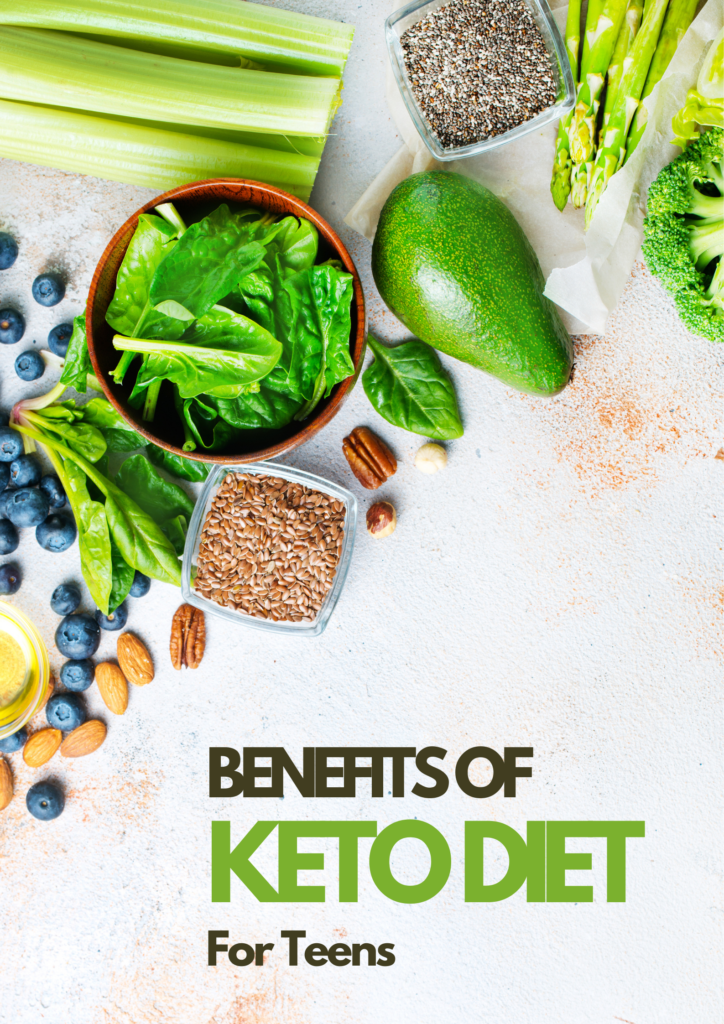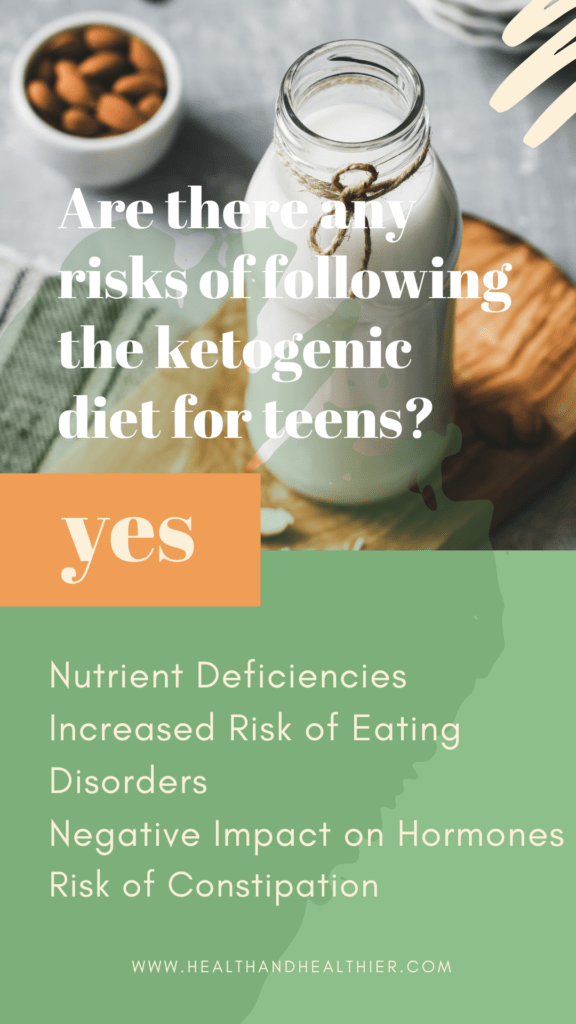A sedentary lifestyle in the developing world has become an issue of concern. World Health Organization studies have shown that more than 1 billion people worldwide are obese, including 650 million adults, 340 million adolescents, and 39 million children. The studies have further reflected that individuals suffering from obesity are likely to be less healthy. While many options are available to check children’s weight, opting for the keto diet has been found effective.
Research has shown that low-carb diets are relatively safe and effective for teens. Ketogenic diets have been established to help with fat melting and weight loss in children. The increasing rates of obesity among individuals have shown people shifting to keto. There are other options to bring the body weight under control, including fasting. But, the latter has often been associated with starvation, which can make an individual more prone to gaining weight in adulthood.
What is the ketogenic diet?
The ketogenic diet is high in fat and low in carbohydrates (sugars) which causes the body to break down fat into molecules called ketones. The ketogenic diet is a high-fat, moderate-protein, and low-carbohydrate diet. The goal of this diet is to force the body to enter a state of ketosis, where it burns fat for energy instead of carbohydrates. This is achieved by drastically reducing carbohydrate intake and increasing fat intake, which causes the body to produce ketones.
So What Exactly Does A Keto Diet Entail?
* Meat, fatty fish: Eggs, beans, poultry without skin, fish, lean meats, unsalted nuts, seeds, and soy items. So if you eat meat, eat white meat, at any rate, multiple times more regularly than red meat.
* Along with dairy products like skimmed, low-fat milk, cheese, and cottage cheese.
* Also, Avocados, healthy oils, and condiments: Some healthy spices like turmeric, ginger, coriander, black pepper, etc. must be consumed.
Here Are Foods To Typically Avoid On Keto
* Lentils/Beans/legumes, root vegetables, most fruits.
* Grains or starches
* Anything that has Sugar, is high-carb or is overly processed
* Eliminate your intake of trans and saturated fats, processed meats, and unnecessary sugars.
Studies on the ketogenic diet for teenagers (Proof that keto diet is safe for teens)
Recent studies have shown that low-carb diets, including the ketogenic diet, can be safe and effective for teenagers who need to lose weight.
Low-carb diets are safe and effective for teenagers
In the study published in the Journal of Pediatrics, young children and adolescents who followed an extremely low-carb diet plan for 12 weeks experienced significant weight loss without any adverse effects on their blood cholesterol levels.
Keto diet results in significant weight loss and reduced seizures in adolescents
This study found that adolescents on the ketogenic diet experienced significant weight loss and a drastic reduction in seizures.
Keto diet is as effective for teens as it is for adults
This study revealed that the ketogenic diet is just as effective for teens as it is for adults.
The ketogenic diet has a long history of treating children, particularly epilepsy in children
This study demonstrated the long history of the ketogenic diet in treating children, particularly epilepsy in children.
These studies provide compelling evidence that the ketogenic diet can be a viable option for teenagers who need to lose weight or manage medical conditions.
Benefits of the Ketogenic Diet for Teens:

Weight Loss: The ketogenic diet can be an effective way for teens to lose weight. By limiting carbohydrate intake, the body is forced to burn fat for energy, which can lead to weight loss.
Improved Mental Clarity: Many people on the ketogenic diet report improved mental clarity and focus. This can be especially beneficial for teenagers who need to focus on schoolwork and other activities.
Reduced Inflammation: The ketogenic diet has been shown to reduce inflammation in the body, which can lead to improved overall health.
Improved Blood Sugar Control: The ketogenic diet can help regulate blood sugar levels, which is important for teenagers with diabetes or other blood sugar disorders.
Improved Athletic Performance: The ketogenic diet has been shown to improve athletic performance by increasing endurance and reducing fatigue.
Tips for Teens Following the Ketogenic Diet:
Consult with a Doctor: Before starting the ketogenic diet, it is important for teens to consult with a doctor or nutritionist to ensure that it’s safe for them.
Gradual Transition: Teens should gradually transition to the ketogenic diet by slowly reducing carbohydrate intake over a period of several weeks.
Keep Track of Macros: It’s important for teens on the ketogenic diet to keep track of their macronutrient intake, including fat, protein, and carbohydrates.
Include Nutrient-Dense Foods: Teens should focus on including nutrient-dense foods in their diet, such as leafy greens, avocados, nuts, and seeds.
Stay Hydrated: Drinking plenty of water is important on the ketogenic diet, as it can help prevent dehydration and constipation. It’s also important for teens to stay hydrated during exercise, especially when following the ketogenic diet. Drinking plenty of water and electrolyte-rich beverages can help prevent dehydration and improve athletic performance.
Plan Ahead: Teens should plan their meals and snacks ahead of time to ensure that they are getting the right amount of macronutrients and staying on track with the diet.
Be Patient: It may take some time for the body to adjust to the ketogenic diet, so teens should be patient and give themselves time to adapt.
Exercise regularly: Exercising is essential for overall health, and this also applies to a keto diet. Teens should engage in regular physical activity. Yoga, cycling, rowing, and jogging are just a few of the physical activities that may be especially beneficial while following the keto diet.
Potential Risks of the Ketogenic Diet for Teens:

While the ketogenic diet can be beneficial for many teens, there are also some potential risks that should be considered.
- Nutrient Deficiencies: Because the ketogenic diet restricts carbohydrate intake, it can be difficult to get enough vitamins and minerals from food. This is especially true for teens who are still growing and developing.
- Increased Risk of Eating Disorders: The strict nature of the ketogenic diet can increase the risk of developing an eating disorder, especially in teenagers who are already vulnerable to disordered eating.
- Negative Impact on Hormones: The ketogenic diet can impact hormones such as insulin and cortisol, which can affect growth and development in teenagers.
- Risk of Constipation: The high-fat nature of the ketogenic diet can lead to constipation, which can be uncomfortable and potentially harmful if it persists.
To minimize the risks of the ketogenic diet, it’s important for teens to work with a doctor or nutritionist to ensure that they are getting enough nutrients and following the diet safely.
Is Keto Diet Sustainable for Teens?
The major problem with the keto diet is its sustainability. The diet restricts an individual to consume any fruit or vegetables which can not be continued for a long time. Even though the diet has many prevalent health benefits, it can not be continued for a long time. It is because of its restrictive nature and lack of detailed studies.
A long-term low-carb diet may promote inflammatory activities and biological aging. There have been reports of deficiency of micronutrients.
The other issue is following a keto diet can be challenging for teens. Their body requires all sources of nutrients from a balanced diet comprising starchy foods, fruits, healthy oils, and meat. Furthermore, following such diets come with restrictions and it is difficult to suppress cravings and peer pressure.
Thus, following a keto diet must come with intensive research, and planning a meal is the key to following such plans.
There are many kid-friendly keto diets available for children. One should not be restrictive while looking into their children’s diet. It is integral to find a balance between following a low-carb diet and enjoying the foods one loves.
Moderation is the key. Any diet plan should come with flexibility so that it can be followed for a long time. Though the keto diet shows dramatic improvements in one’s health, it is not advised to shift the intake of nutrients to another side. One must maintain a balance of nutrition. The keto diet must only be followed under the supervision of a dietician. It is because the diet may not be appropriate for everyone, especially those with medical conditions.
Conclusion
The keto diet is an effective way to lose weight, promote heart health, regulate blood sugar and improve mental health. It provides an opportunity for teens to live healthy lives and avoid the health problems that arise from poor lifestyle choices. Implementing a keto diet needs planning, support, and monitoring, but with the right approach, it is possible to achieve optimal health benefits. While the keto diet can help you lose weight, other eating habits don’t require as much restriction and don’t have the risks of the keto diet. The majority of children and adolescents should not follow a ketogenic diet unless it is specifically directed by a physician for medical reasons.
ALSO READ
Low carb vegetables in India
Fruit yogurt recipes for weight loss
Benefits Of Bilberry For Weight Loss
Best fishes for weight loss
